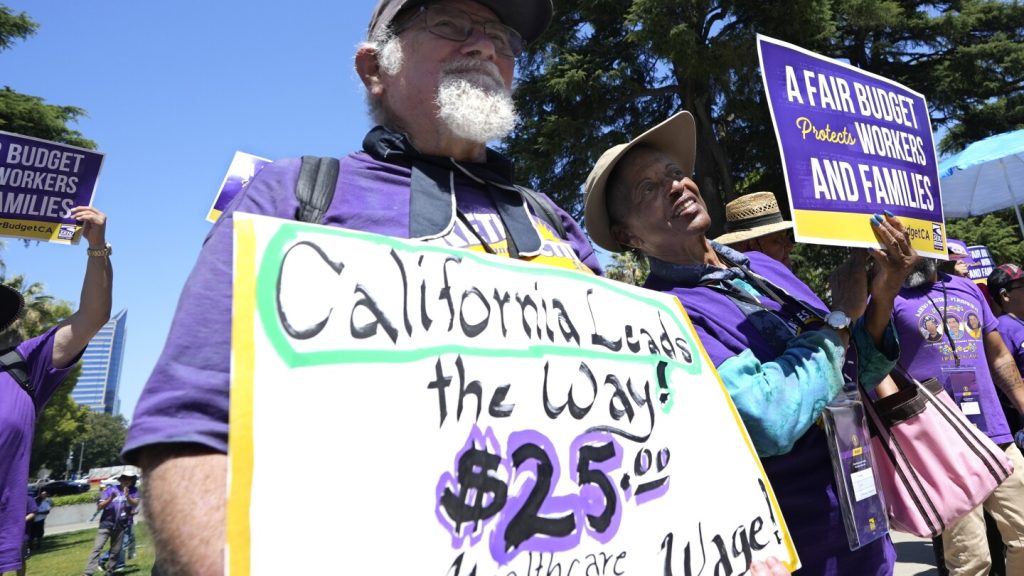In a recent development, Democrats in California have reached an agreement to delay a minimum wage increase for approximately 426,000 healthcare workers in order to address the state’s budget deficit. This delay is part of a larger plan to close an estimated $46.8 billion budget shortfall, marking the second consecutive year that California has faced a multibillion-dollar deficit. The healthcare workers were initially slated to receive a pay raise on July 1 as part of a gradual plan to increase their wages to $25 per hour over the next decade. However, under the new agreement, this raise could be delayed until October 15, contingent upon California’s revenues meeting certain criteria.
The delay in the minimum wage increase for healthcare workers is a strategic move due to the significant impact it would have on the state’s budget. With California employing a large number of healthcare workers and also providing medical benefits through the state’s Medicaid program, the cost of implementing the wage increase was projected to be substantial. By delaying the raise until January, the strain on the general fund is expected to be reduced to approximately $600 million, gradually increasing each year until reaching the $25 per hour benchmark for most healthcare workers. Despite the delay, the Newsom administration remains optimistic about the eventual implementation of the raise, reflecting the recent rebound in California’s revenues.
The budget agreement reached between Governor Gavin Newsom and legislative leaders includes a total spending allocation of $297.9 billion for the upcoming fiscal year starting on July 1. As part of this agreement, various cuts totaling $16 billion have been approved, including reductions to a college financial aid program and affordable housing initiatives. However, some proposed cuts have been abandoned, such as discontinuing payments for caregivers of low-income disabled immigrants covered under Medicaid. The agreement also includes a provision to provide financial assistance to the utility Pacific Gas & Electric to support the state’s lone remaining nuclear power plant.
In addition to the budget cuts, the agreement also involves an almost 8% reduction in funding for state agencies, as well as an extra $350 million cut for state prisons. Moreover, a temporary tax hike has been introduced for businesses with taxable income exceeding $1 million, effective from this year through 2026. Governor Newsom emphasized that this agreement aims to pave the way for long-term fiscal stability by addressing the current shortfall and enhancing budget resilience in the future. Lawmakers are expected to vote on the budget proposal in the coming week, with Republicans expressing disappointment over being sidelined from the negotiation process.
Senate President Pro Tempore Mike McGuire described the current budget year as challenging but highlighted the efforts made by elected officials to mitigate the shortfall while preserving essential public services. Democratic Assembly Speaker Robert Rivas echoed similar sentiments, emphasizing the Assembly’s commitment to safeguarding critical services for Californians. Despite the tough decisions made to address the budget deficit, the agreement reflects a collective effort to navigate through financial challenges and ensure the state’s fiscal stability in the long term.


